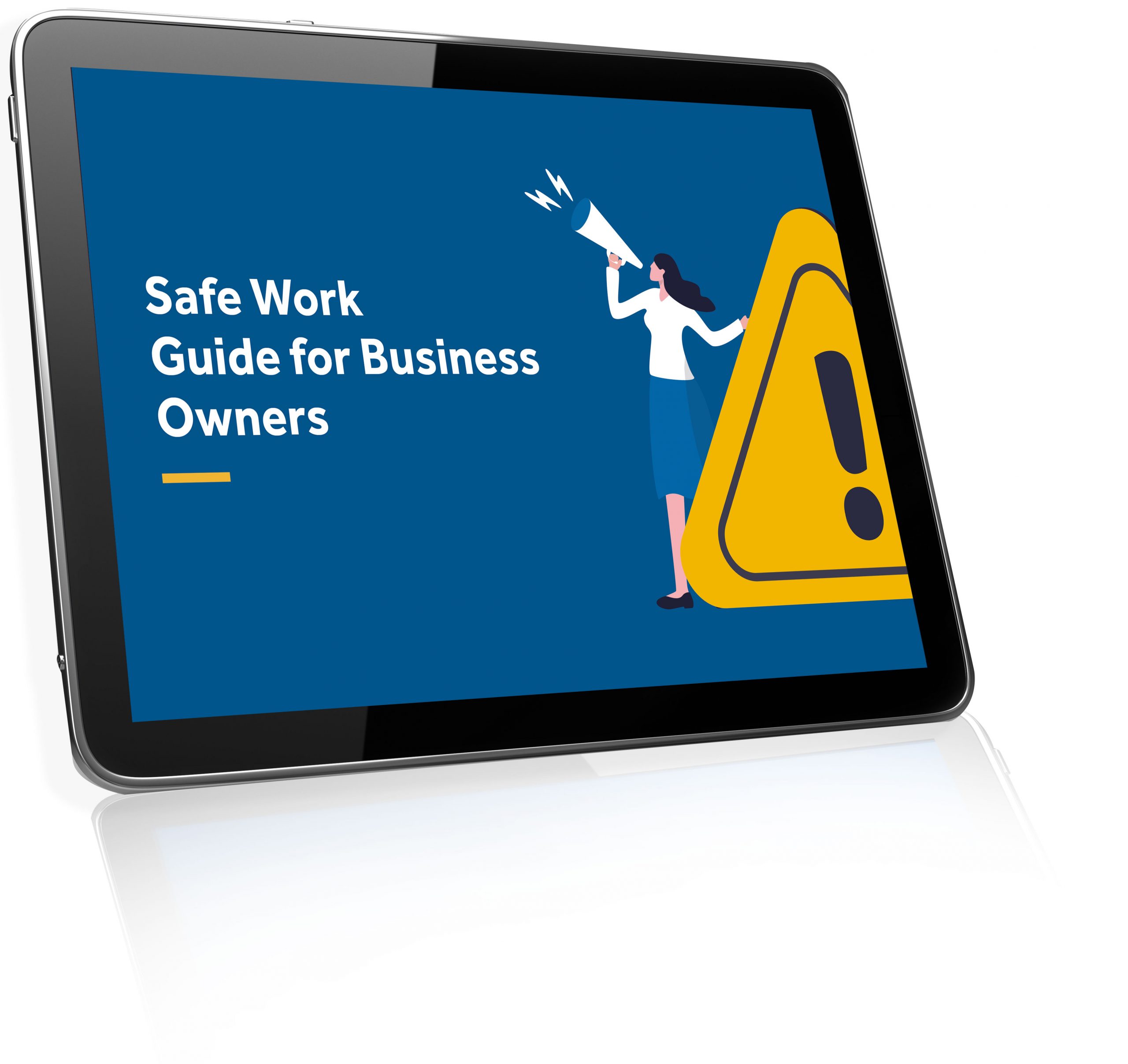
What is duty of care?
Duty of care is a legal obligation to take reasonable steps to protect others from harm. In the context of business, duty of care refers to the responsibility of business owners and employers to protect the health and safety of their employees, and to ensure that their business activities do not harm others.
Duty of care beyond the workplace
Employers also have a duty of care to ensure that their business activities do not harm others outside of the workplace. For example, an employer may have a duty of care to ensure that its products or services are safe to use, or that its activities do not pollute the environment.
Who has a duty of care?
All Australian businesses and employers have a duty of care. This means that they have a legal obligation to take reasonable steps to protect their staff and others affected by the business and its activities from harm. This includes:
Employers of all sizes, from small businesses to large corporations: All businesses have a duty of care to their employees, customers, and visitors. The size of the business does not matter.
Self-employed people: Self-employed people have a duty of care to themselves and to others who may be affected by their work. For example, a self-employed electrician has a duty of care to ensure that their electrical work is safe and does not cause harm to anyone.
Government agencies: Government agencies have a duty of care to the public. This includes providing safe public services and maintaining safe public spaces.
Non-profit organisations: Non-profit organisations have a duty of care to their staff, volunteers, and clients. They also have a duty of care to the public if their activities could potentially harm others.
Examples
A construction company has a duty of care to its employees to ensure that their workplace is safe. This includes providing adequate safety training, maintaining equipment in good condition, and implementing safe work procedures.
A restaurant has a duty of care to its customers to serve safe food. This includes following proper food safety procedures and storing food at the correct temperature.
A school has a duty of care to its students to provide a safe learning environment. This includes supervising students during school hours, ensuring that playground equipment is safe, and preventing bullying.
A local government has a duty of care to the public to maintain safe roads and parks. This includes repairing potholes, trimming trees, and removing dangerous debris.
Duty of care is a serious legal obligation, and businesses and employers can be held liable for breaching their duty of care. This means that they may be sued for damages or even face criminal charges.
Benefits
There are a variety of benefits that come with businesses meeting their duty of care. These include:
Reduced risk of workplace accidents and injuries: When a business meets its duty of care obligations, it is taking steps to protect its employees from harm. This can lead to a reduction in workplace accidents and injuries, which can save the business money on insurance costs and prevent downtime caused by injured or unwell staff.
Improved employee morale and productivity: Employees are more likely to be motivated and productive if they know that their employer is committed to their health and safety. When employees feel safe and valued, they are more likely to stay with the company and perform their jobs to the best of their ability.
Enhanced reputation: A business that is known for its commitment to safety is more likely to be respected by customers, suppliers, and other stakeholders. This can lead to increased business opportunities and partnerships.
Stronger legal compliance: By meeting its duty of care obligations, a business is reducing the risk of legal action being taken against it. This is because the business is demonstrating that it is taking reasonable steps to protect its employees and others from harm.
The Work Health and Safety Act
As well as having a moral responsibility toward duty of care, the Work Health and Safety Act 2011 (Cth) (WHS Act) places an obligation on employers to protect their employees and others who may be affected by their activities.
The WHS Act is the federal legislation that sets out the duties of care for employers in Australia. It applies to all workplaces in Australia, regardless of size or industry.
The WHS Act requires all employers to:
Provide a safe and healthy work environment for their employees
Identify and assess risks to health and safety
Implement control measures to eliminate or minimise those risks
Provide information, training, and supervision to employees
Monitor the health and safety of employees and the workplace
In addition to the WHS Act, there are a number of other state and territory laws that may be relevant to duty of care, such as laws relating to product safety, environmental protection, and consumer protection.

How safe is your business?
Protect your people and your business by getting your health and safety up to scratch. We’ve created this FREE Safe Work Guide for Business Owners, which is suitable for most businesses. It covers all the essentials, including:
- Tips to manage health and safety at work
- Ways to support mental health at the workplace
- Health and safety obligations as an employer
What is the legal definition of a duty of care breach?
In legal terms, a breach happens when:
Somebody has been injured because of someone else’s behaviour (either their actions or lack of action); and
The risk of an injury occurring was clear; and
It was reasonably foreseeable that the person would be injured because of the other person’s actions (or lack of action); and
If the behaviour that caused the injury was unreasonable (i.e. if a reasonable person in the same situation would have done things differently).
What are the legal consequences of a breach?
Employers who breach their duty of care may be liable for civil and/or criminal penalties. Civil penalties can include fines and compensation to victims. Criminal penalties can include imprisonment. Let’s take a closer look.
Civil penalties
Civil penalties can include:
Fines: Employers may be fined by a court for breaching their duty of care. The amount of the fine will depend on the severity of the breach and the consequences. For example, an employer who breaches their duty of care by failing to provide employees with safe work equipment may be fined more heavily than an employer who breaches their duty of care by failing to provide employees with adequate training.
Compensation to victims: Employers may also be ordered to pay compensation to victims of a breach of duty of care. Compensation can include damages for pain and suffering, loss of earnings, and medical expenses.
Criminal penalties
In some cases, employers who breach their duty of care may also face criminal charges. This is particularly likely if the breach of duty of care results in serious injury or death. For example, an employer who knowingly exposes their employees to dangerous chemicals may be charged with criminal negligence.
Examples of criminal penalties for breaching a duty of care
Here are some examples of criminal penalties that employers may face:
In New South Wales, an employer who breaches their duty of care and causes the death of an employee may be sentenced to up to 25 years in prison.
In Victoria, an employer who breaches their duty of care and causes serious injury to an employee may be sentenced to up to 10 years in prison.
In Queensland, an employer who breaches their duty of care and causes the death of an employee may be sentenced to up to 20 years in prison.
It is important to note that the consequences of breaching a duty of care will vary depending on the specific circumstances of the case. However, it is clear that employers can face serious penalties for breaches.
What other negative effects can a breach have?
Beyond the legal implications, there are a number of negative effects that a business can experience if they do not fulfill their duty of care:
Reduced employee morale and productivity: Employees who feel unsafe or undervalued are less likely to be motivated and productive. This can lead to increased absenteeism, turnover, and decreased output.
Damaged reputation: A business that is known for its poor safety record is likely to be viewed negatively by customers, suppliers, and other stakeholders. This can make it difficult to attract and retain customers, partners, and investors.
Financial losses: In addition to the cost of legal action, businesses that breach their duty of care may also face financial losses from insurance claims, medical bills, and lost productivity.
Increased risk of accidents and injuries: Businesses that do not meet their duty of care are more likely to experience accidents and injuries in the workplace. This can lead to increased costs and disruptions to business operations.
How to meet your duty of care
Identify and assess risks: Employers should conduct regular risk assessments to identify and assess hazards in the workplace. This includes hazards such as dangerous machinery, chemicals, and physical hazards such as slips, trips, and falls.
Implement control measures: Once hazards have been identified, employers must implement control measures to eliminate or minimise the risks associated with those hazards. Control measures may include engineering controls (such as machine guards), administrative controls (such as safe work procedures), and personal protective equipment (such as gloves and safety glasses).
Provide training and supervision to employees: Employees need to be trained on safe work procedures (such as manual handling) and how to identify and report hazards. They also need to be supervised to ensure that they are following safe work practices.
Maintain a safe and healthy work environment: This includes keeping equipment in good repair, ensuring that there is adequate ventilation, and providing appropriate cleaning and sanitation facilities. In a modern context, employers must also address working from home health and safety, including making sure remote employees have a safe environment to work in.
Monitor the health and safety of employees and the workplace: This includes regularly inspecting the workplace for hazards, conducting risk assessments and updating your risk management plan accordingly. It also includes having an accident reporting process in place and monitoring employees for signs of work-related illness or injury.
It’s not just a legal obligation, it’s the right thing to do
Australian businesses and employers have a serious legal responsibility to keep their employees, customers, and the public safe. But remember, it’s more than just a legal requirement – it’s the right thing to do.
How can Employsure help?
Over 30,000 business owners trust Employsure to support them with their health and safety obligations. Unsure about your WHS responsibilities and whether you’re meeting them? We can help your business too.
For peace of mind, call our FREE Advice Line now on 1300 543 459 and get all your difficult health and safety questions answered by the experts.


